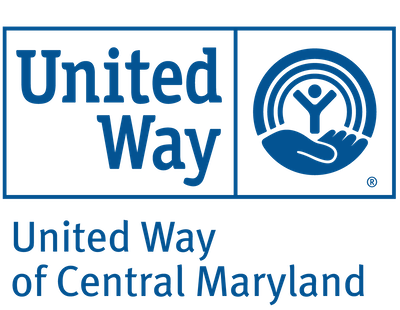United Way of Central Maryland Releases Year One COVID-19 Impact Statistics
Statistics Capture United Way’s Commitment to Respond, Recover, Reimagine and Rebuild
Baltimore, Md. (March 26, 2021) – United Way of Central Maryland has raised nearly $3 million in its COVID-19 Fund since the onset of the pandemic. The organization quickly shifted gears this time last year to set up the fund, and worked with partners to both distribute funds, and identify the needs in communities throughout the region. As part of this work, the organization participated in funding collaboratives with the COVID-19 Relief Funding Collaborative of Greater Baltimore and HoCo Responds. These funds have made the organization’s efforts to provide what’s needed, where it’s needed in this unprecedented time of need possible.
“The virus has changed everything, from how we work to how we shop,” said Franklyn Baker, president and CEO, United Way of Central Maryland, “but United Way of Central Maryland has remained steadfast in its commitment to the community by distributing food and home supplies, keeping people in their homes, supplying Amazon tablets to students, installing antennas for free Wi-Fi, and more. We have been able to help neighbors across the region in meaningful and impactful ways.”
The 211 Maryland United Way Helpline received a record of more than 210,000 calls in the last year. The 24/7 information and referral service line onboarded new volunteers to help with the increased call volume, and took on the role of critical resource for those navigating systems like housing, food access, COVID-19 concerns, mental health needs and more. The helpline also became a resource for United Way of Central Maryland – helping the organization to pinpoint needs and emerging in the communities it serves. The most frequently reported needs were housing and food.
“We know there’s an increased need here in Greater Baltimore,” Baker added. “Many of the record number of calls to our 211 helpline during this period were from people seeking assistance for the first time in their lives. COVID-19 has created unprecedented need across our region. We started our efforts last year with the intention to respond to immediate needs, and then shift to recovery and rebuilding. We’re still responding as new needs are identified. There’s a lot of work to be done.”
As part of the effort to address immediate needs, the organization allocated $382,000+ to bridge the digital divide – a priority need as everything from work, to medical treatment and schooling moved virtual. This funding made partnerships with organizations like RowdyOrb.it (providing internet to nearly 8,000 residents in the Brooklyn/Curtis Bay neighborhood), and Byte Back (providing technology support to 211 callers) possible. A partnership with Amazon helped get kids connected to school via tablets. Additionally, 400,000+ meals were delivered, made possible by numerous partnerships with organizations like the Maryland Food Bank, DoorDash, Holly Poultry, H&S Bakery and more.
Through programs including STEP (Strategic Targeted Eviction Prevention) in partnership with Baltimore County as well as a rent forgiveness program and legal assistance, United Way of Central Maryland has been able to keep more than 3,500 tenants in their homes. The nonprofit is working to expand the STEP program with other area counties as well.
“United Way of Central Maryland has served the greater Baltimore region for almost 100 years,” said Baker. “We were able to quickly focus our operations to support COVID-19 related needs by utilizing and refocusing many of the programs and partnerships we already have in place. Now, as we look to the future of our work, we have launched a COVID-19 Survey along with United Ways in Maryland to help us get a better sense of the needs in our communities a year since the pandemic started.”
The confidential survey, which is open to responses through the beginning of April, will help to identify the increased need throughout the state, as well as pinpoint those specific needs.
Before the pandemic hit, 39 percent of Maryland households were not earning enough to afford basic household necessities like food, housing, transportation, health care and childcare, according to the 2020 ALICE Report. That number is undoubtedly higher today.
Nearly every facet of what makes a community has been impacted by COVID-19, from the health of its residents and businesses to its economy, educational system, and beyond. United Ways around the world have stepped up to provide vital services that are crucial to healthy communities. For more information on United Way of Central Maryland’s COVID-19-related work, click here.
# # #
United Way of Central Maryland promotes equity, creates opportunity, and improves lives by increasing access to basic needs such as health, housing, employment, and education. Learn more at uwcm.org.
